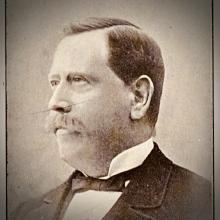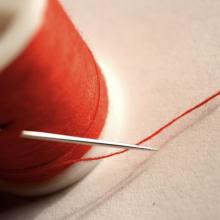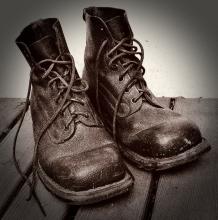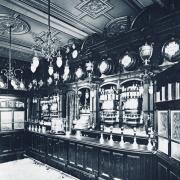
Hotels, Hydropathics, &c.
Continental hotel and restaurant,
Meuse Lane (on St David Street.)
Luncheons, Dinners, and Suppers at Popular Prices.
Good-Sized Rooms for Meetings for Business Men.
Hotel Tariff Moderate.
G. RIETZ, Proprietor and Manager.[1]
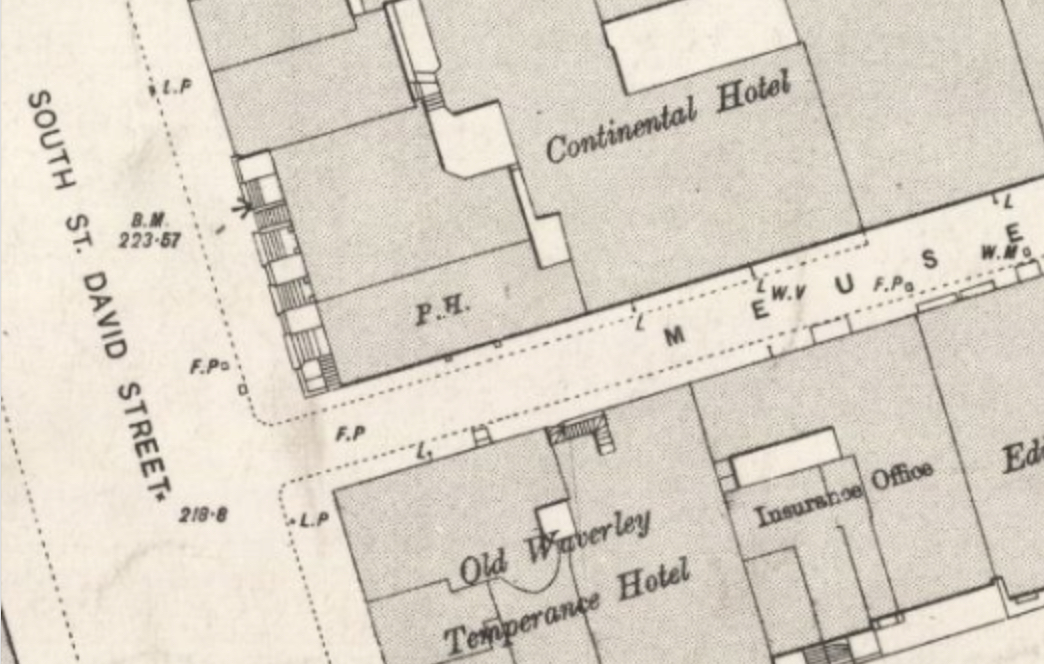
Scotsman, 24 April 1902
[1] The hotel was at Nos. 7 and 9 Meuse Lane. Its story begins respectably enough here. But follow the thread as it takes a dark turn later: S (2.10.02), EEN (21.11.02), S (25.11.02, 26.11.02), EEN (15.12.04). Images: Zythophile, accessed 30.12.20; Ordnance Survey, Large-scale Town Plan, surveyed 1893–94, reproduced with the permission of the National Library of Scotland.
****
RAID ON EDINBURGH BOOKMAKERS. SEVERAL ARRESTS.
Consequent on the new betting bye-laws coming into operation in Edinburgh this afternoon several bookmakers transacting their business in the streets were arrested by police officials.
The accused, whose stances are High Street, Market Street, and East Register Street were taken to the Police Office in cabs, and afterwards liberated each on £2 bail.
The arrests caused a considerable flutter among the sporting fraternity of Edinburgh, who did not anticipate such prompt action by the police. Other apprehensions are expected later in the day. The accused will appear at the Police Court to-morrow morning.
Edinburgh Evening News, 25 April 1902
****
SMART POCKET-PICKING IN
WEST REGISTER STREET.
A LARGO VICTIM.
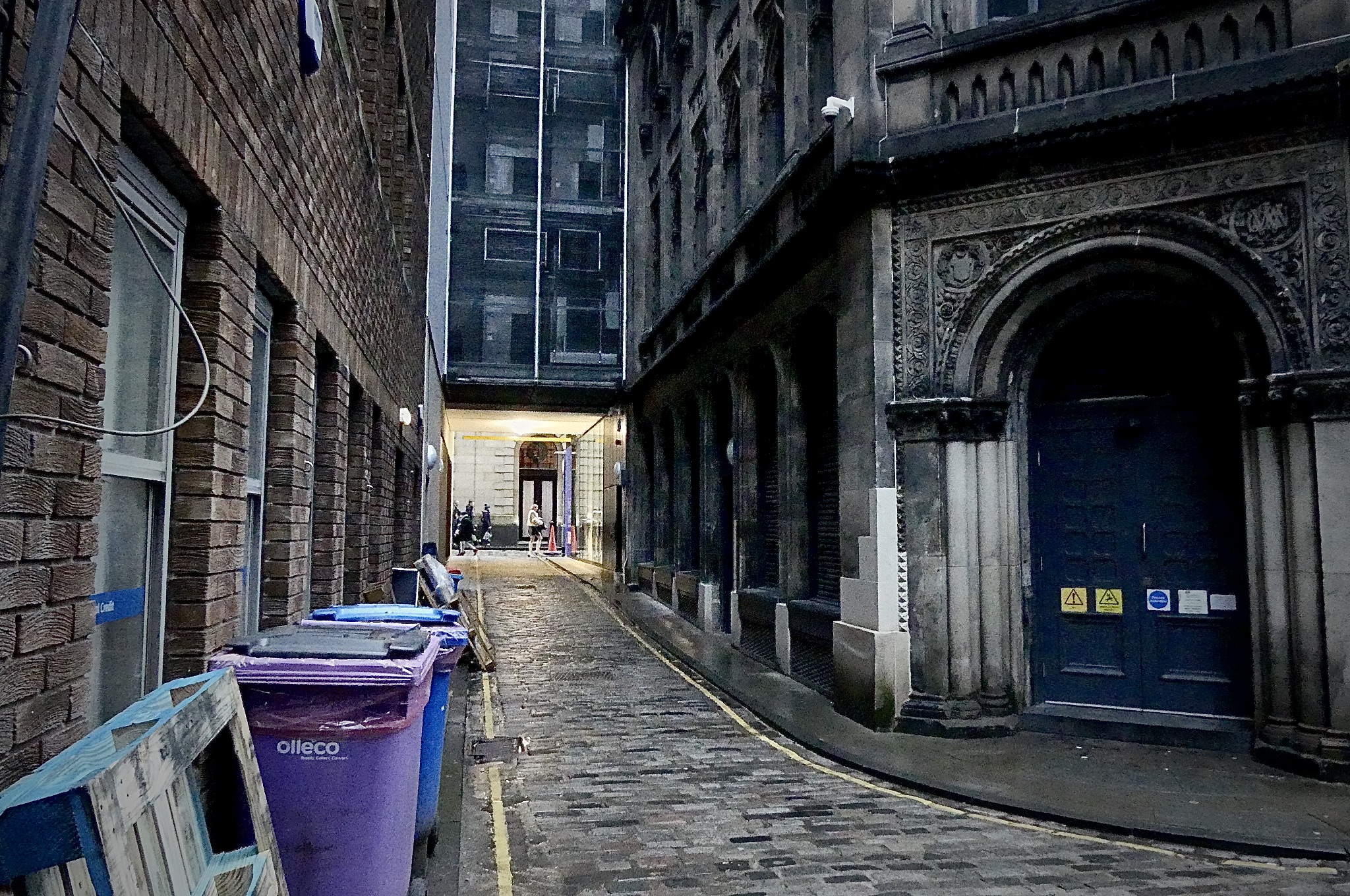
Before Bailie Murray, Edinburgh City Police Court to-day. Harry Taylor (26), described as a ladies’ tailor, no fixed residence, and Annie Forrester (20), 6 Lothian Street, Edinburgh, two respectably-dressed individuals, were charged with the theft of a silver Geneva watch from a Largo mason in West Register Street on the night of Saturday, the 19th inst. Taylor pleaded not guilty, but Forrester admitted the charge.
Evidence was led at some length. On the day mentioned the complainer came to Edinburgh for the day, and meeting Taylor in the Prince of Wales’ Hotel had several drinks with him and some other men. The party then adjourned outside, and the Largo man was speaking to Taylor when he felt a tug at his waistcoat, and looking down found that his watch and chain had disappeared.
Two match girls, Annie Burns and Louisa Kirkland, and a newsvendor, Thomas Gallacher, a typical product of the streets, constituted the principal witnesses for the prosecution, all speaking to seeing Taylor pick the watch out of the man’s pocket and hand it behind him to the female accused, who was standing in the rear, and who put it in a bag and hurried off.
“He wiped the ticker out of his pocket, and tipped it to the lady behind” was Galacher’s description of the operation. The lad also spoke to a visit on the following day from a man who offered him a dollar to “keep his mouth shut” about the case.[2]
Tayior was apprehended at the time by Detective Simpson, and the female accused by Detectives Grant and Craib at midnight the same night from a description supplied by the match girls and the newsvendor. The watch was not recovered.
Taylor denied that he knew anything about the theft, and other witnesses were called for the defence, the female accused averring that she took the watch herself in the public-house.
Bailie Murray found the charge proved against both accused. Taylor was sentenced to thirty days’ imprisonment, and Forrester, who had been in prison since the day in question, to twenty days.
Edinburgh Evening News, 28 April 1902
[2] DSL gives dollar as English slang for a 5s coin. The Prince of Wales stood at the top of the street pictured, on the right.
****
THE PRINCE OF WALES’ HOTEL.
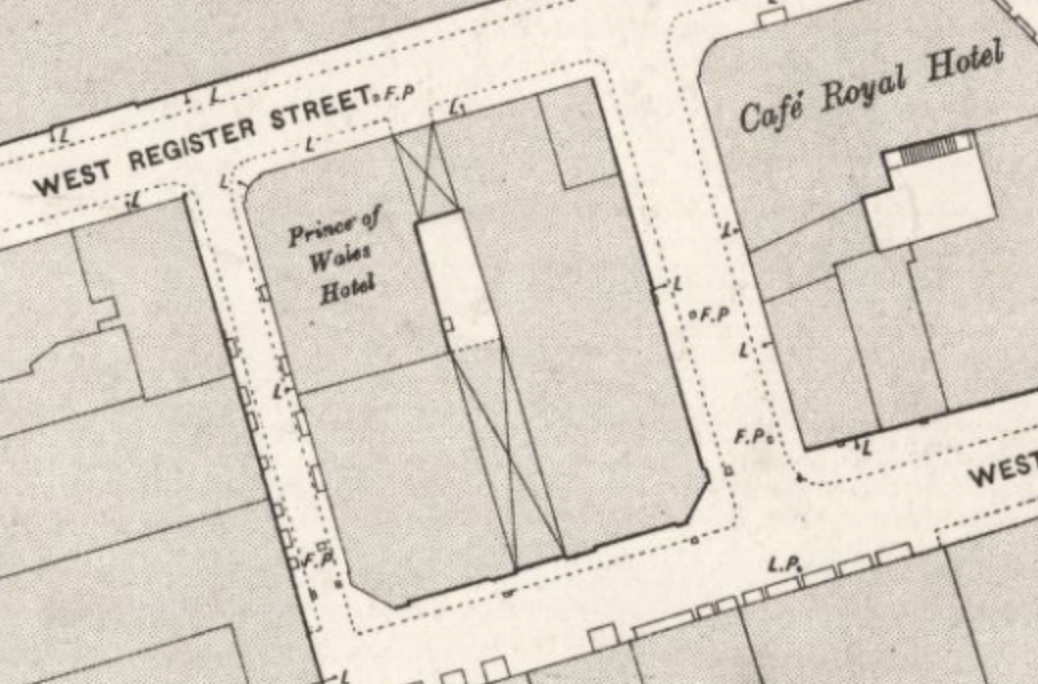
There were two appeals against the refusal of a hotel certificate for 46 West Register Street, one by Alexander Greig, the present holder, and the other by his brother, Robert Findlay Greig, who desire a transfer. Mr M’Lennan, advocate, appeared for both, and, after referring to the old established character of the house, which is known as the Prince of Wales’ Hotel, and pointing out that the rent was £250 per annum and that four years of the lease had yet to run, said the present lessee had been finding out that his health had been suffering by the confinement in these premises.
Complaints had been made that loose women frequented the place, and that betting took place in the house on certain days in February and March this year. He submitted that it was difficult in these premises, which were so near the Register House, where betting men were accustomed to congregate, to keep betting people away from the premises, and it was also a difficult matter to keep the women away. He submitted that the business had been conducted carefully under circumstances of extreme difficulty, and went on to state that loose women were not allowed to frequent the house, and that betting was not allowed to take place with the knowledge of the applicants.
Two plain clothes men had gone to the premises daily for a time, and had made it their business to see if they could not enter into bets with some people there, and the detectives had succeeded on two occasions in entering into some bets with them. But because that was so was it to be inferred that the hotelkeeper knew anything about these transactions? If their Honours gave a ruling that members of the betting fraternity and women of the class referred to were to be refused admission to the premises, and refused drink, Mr Greig would be very pleased to act upon it. It was hoped however, that in consequence of the recent betting by-laws it would be much less difficult to conduct the business in future.
Money for sweepstakes had been taken on two occasions by the barmaid, and one of them was won by a detective. Bailie Brown asked what the certificate said about betting? Mr M’Lennan—I hope I have been an exemplary member of the bar ever since I was called, but there was always a Parliament House Derby sweep stake, and I took part in it. (Laughter.)[3] Baillie Brown—But we are dealing with licensed premises and unlawful games, and not with Parliament House. Mr M’Lennan—I venture to think that no gentleman in Parliament House would engage in anything which appeared to be an unlawful game. (Laughter.)
The Chief Constable reported regarding the house and said three years ago the present applicant was warned, when he got the licence, of the character of the premises, and he had not profited by that warning. The appeal was unanimously refused.
Scotsman, 7 May 1902
[3] Parliament House, in Parliament Square, is where the Supreme Courts are situated.
****
OUR PRIZE COMPETITIONS.
________
ANECDOTE COMPETITION.
Two prizes of two shillings and sixpence each will be given every week for the best anecdotes sent to the office of this paper.
[…]
IRVING’S PIERCING EYE.
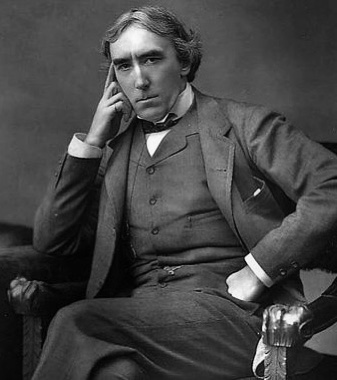
The intensity of Sir Henry Irving’s gaze once had the effect of frightening an actor off the stage.[4]
It was during the performance of “Macbeth” in Manchester. Sir Henry, playing the part of Macbeth, came to the line where he has to say to one of the murderers, “There’s blood upon thy face!” The great actor stared so hard at the ‘murderer’ that he quite forgot that he was acting on the boards, and also his answer (“‘Tis Banquo’s, then!”)
“Great Scott! Is there?” he replied confusedly, and dashed off the stage.
[Sent by MINNIE ADAMS, 4 South Gayfield Lane.]
Leith Burghs Pilot, 10 May 1902
[4] Sir Henry Irving (1838–1905), English actor and theatre manager. Image: Wikipedia.

